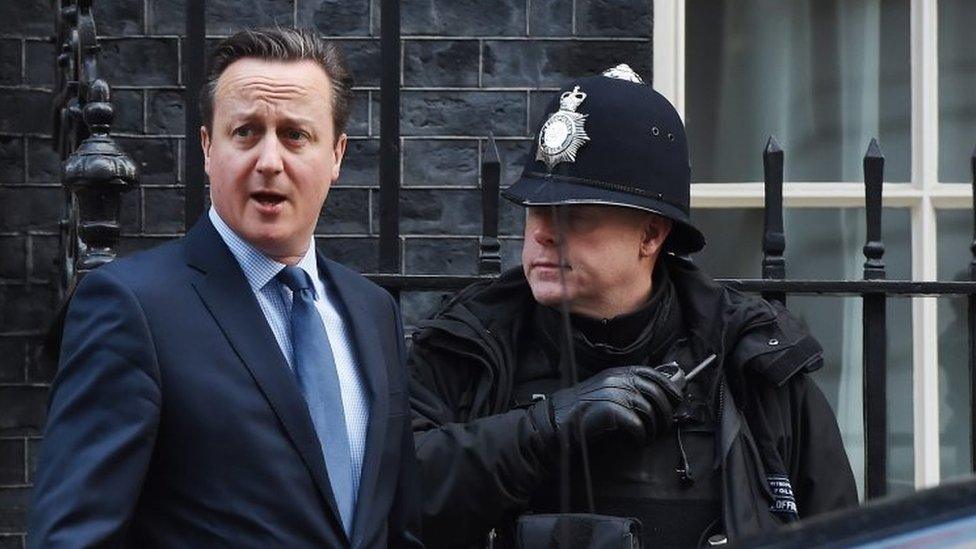EU referendum: How Cameron will get a June vote
- Published

David Cameron wants to get a deal quickly on his EU reforms so he can hold a referendum by late June.
The prime minister wants to keep up the political momentum, give his opponents less time to organise and get the issue out of the way as soon as possible.
But if the negotiations come unstuck in Brussels this week, can Mr Cameron still get his referendum by June?
The short answer is yes.
Here is the long answer why.
Once a deal is done, the European Union Referendum Act 2015 makes clear that three processes need to take place before the referendum can be held.
First, a swathe of secondary legislation needs to be passed through Parliament, minor bits of law that fill in the gaps left blank by the Act.
Referendum period
These would set things like the date of the referendum, the length of the statutory "referendum period", and various rules about the administration of the poll.
Now, getting these so-called statutory instruments through Parliament can be complicated and involve various committees sitting before a decision is made.
As a rule of thumb, they normally take six weeks to become law. But, as ever, there is flexibility and if MPs, peers and officials pull their fingers out, that timescale can be crunched down to a couple of weeks, according to the House of Commons library.
Second, there needs to be a period of time allowed for the Electoral Commission to choose which two organisations will officially campaign for Remain and Leave and receive public funding to do so.
According to existing electoral law, this so-called "designation period" must last six weeks.
But the Referendum Act actually allows the government to set the start date and the duration of the period. So that six weeks could be shortened, although the Electoral Commission might resist that.
And third, there must be a so-called referendum period - when the formal campaign takes place and various spending rules are in force - that must last a minimum of 10 weeks. That is one of the few timescales in the whole process that is fixed.
Cameron in a hurry
The government has pencilled in Thursday, 23 June for the referendum.
So if you wind back ten weeks, the formal referendum period must begin by Thursday, 14 April.
If you shorten the designation period down to, say, three weeks, that would have to begin by Thursday, 24 March.
And then if you assume MPs and peers take only three weeks to pass all the necessary secondary legislation, that process would have to begin by Thursday 3, March.
Now these are all assumptions but they are not implausible ones.
And I have been quite generous in the timescales: Parliamentary processes can always be fast tracked in extremis; and it is not impossible for the designation period to overlap with the referendum period.
The bottom line is that the prime minister has until the end of February or at least early March to get a deal on his EU reforms without losing his potential referendum date in late June.
There is still time, say, for a second emergency summit to be held at the end of next week, or even a few days beyond.
One thing is clear: Mr Cameron is in a hurry.
As he told MPs last month: "I am keen to get on and hold a referendum....Believe me, by the time we get to the end of the referendum campaign, everyone will have had enough of the subject."
- Published18 February 2016